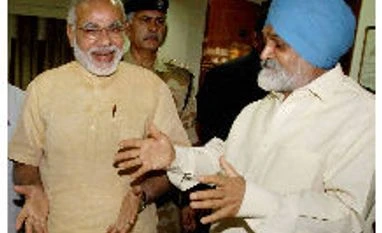At present, ‘effective control’ has not been defined by the government. DIPP is likely to tweak the definition of ‘control’ — ‘effective control’, too, would mean the same — as resting with the one that has the right to appoint a majority of directors and influence major policy decisions on the board of a company. At present, according to the foreign direct investment (FDI) policy, ‘control’ rests with the one who has the power to appoint a majority of directors in a company.
“The word ‘effective’ has been used in the policy as an adjective. In the new definition, ‘control’ and ‘effective control’ would mean the same. So, there is no need to define it separately at the moment. After the Cabinet approval, the Reserve Bank of India (RBI) will notify the relevant press notes for the purpose,” said a finance ministry official asking not to be named.
A decision on the Jet-Etihad deal was deferred by the Foreign Investment Promotion Board (FIPB) last week, as the government wanted more details of effective control and ownership. The decision came after the Securities and Exchange Board of India, the corporate affairs ministry and DIPP raised concerns on substantial management rights going to Etihad under the agreement.
The FDI policy says approval can be granted to an airline that is registered and has its principle place of business in India; the chairman and at least two-thirds of the directors of which are citizens of India; and the substantial ownership and effective control of which is vested in Indian nationals.
Officials said though Etihad had picked only a 24 per cent stake in Jet, its say in the management would be equal to that of Jet. They said the shareholder agreement between Jet and Etihad had been worked out in a way that the Abu Dhabi-based carrier got a substantial role in decision making. The new definition of control is likely to take care of all these issues and Jet might have to rework its deal with Etihad.
Some of the rights proposed to Etihad include appointment of three nominee/investor directors, appointment of one of its nominee directors as vice-chairman of the 14-member board, the authority to appoint one of the joint auditors, and at least one of its nominee directors in each of the board committees.
The government has capped FDI in aviation at 49 per cent so that the management control remains with Indians. In the highest foreign investment in the Indian aviation sector since September 2012 (when the government relaxed FDI norms), Abu Dhabi-based Etihad had in April this year agreed to pick up a 24 per cent equity stake in Jet for $370 million (Rs 2,058 crore).
A QUESTION OF CONTROL
- The issue
The FDI policy talks about ‘effective control’ but does not define it; only control has been defined - The implication
The Jet-Etihad deal was deferred as the govt sought details of effective control and ownership - The solution
The definition of ‘control’ will be changed in a way that it and ‘effective control’ mean the same - The existing definition
- Control rests with the one who has the power to appoint a majority of directors
- The new definition
Control is the right to appoint a majority of directors and influence major policy decisions
)